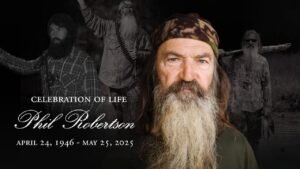Mark Wahlberg: The A-List Actor Championing Faith-Based Cinema

Introduction to Mark Wahlberg
Mark Wahlberg has established himself as a luminary in the entertainment industry, transitioning seamlessly from his initial career as a musician and model to becoming one of Hollywood’s most esteemed A-list actors. Born on June 5, 1971, in Boston, Massachusetts, he first gained recognition in the early 1990s as the frontman of the music group Marky Mark and the Funky Bunch. This phase of his career culminated in the hit single “Good Vibrations,” which topped charts and showcased his engaging persona.
Transitioning into acting, Wahlberg captured audiences with remarkable versatility. He gained critical acclaim for roles in films such as “Boogie Nights,” where he portrayed the ambitious adult film star Dirk Diggler, earning a nomination for an Academy Award. His dedication to his craft was evident in his ability to embody varied characters across genres, ranging from dramatic roles in “The Six Wives of Henry Lefay” to action-packed performances in “The Italian Job” and “Transformers” series. This adaptability has cemented his reputation as a dependable leading man in Hollywood.
Wahlberg’s rise to stardom is also marked by his successful collaborations with notable directors, including Martin Scorsese in “The Departed,” which further showcased his ability to perform in high-stakes narratives. Throughout his career, he has consistently chosen projects that resonate with him personally and professionally, signaling a shift towards faith-based cinema, which aligns with his values and beliefs. This significant transition not only demonstrates his evolution as an artist but also underlines his commitment to promoting positive messages through film, establishing him as a unique figure in contemporary cinema.
Wahlberg’s Rise to Fame
Mark Wahlberg’s ascent to stardom is a testament to his talent and versatility as a performer. Initially gaining recognition as a rapper in the early 1990s, Wahlberg, known then as Marky Mark, made a name for himself in the music industry with the hip-hop group Marky Mark and the Funky Bunch. Their hit single “Good Vibrations” propelled him into the limelight, but it was his subsequent pivot to acting that truly established his career in Hollywood.
Wahlberg’s transition from music to film began with a series of significant performances in the mid-1990s. His role in “Boogie Nights” (1997) showcased his ability to tackle complex characters, portraying Eddie Adams, a young man becoming a star in the adult film industry. This performance earned him critical acclaim and opened the door to a variety of roles that demonstrated his depth as an actor.
The late 1990s and early 2000s marked a period of significant growth for Wahlberg, with standout performances in films like “The Perfect Storm” (2000) and “Four Brothers” (2005). His work in “The Departed” (2006) further solidified his status as a leading man, earning him an Academy Award nomination for Best Supporting Actor. Wahlberg’s ability to seamlessly transition between genres, from action to drama to comedy, has contributed to his enduring popularity in the film industry.
In addition to his film career, Wahlberg has also found success in television, producing and starring in various projects, including the hit HBO series “Entourage.” This diverse portfolio illustrates his unique capability to balance varied roles across different mediums, catering to a wide audience and demonstrating his talent as a multi-faceted entertainer. Wahlberg’s journey exemplifies how perseverance and adaptability can lead to remarkable achievements in the competitive world of Hollywood.
The Influence of Faith in Wahlberg’s Life
Mark Wahlberg’s personal faith journey has been marked by significant experiences that have profoundly shaped his worldview and professional endeavors. Born and raised in a Catholic family, Wahlberg has often reflected on the importance of faith throughout his life. However, it was during his tumultuous teenage years, characterized by various run-ins with the law and a troubled lifestyle, that he began to seek a deeper spiritual connection. A pivotal moment occurred in 1988 when Wahlberg faced a serious legal situation that prompted him to reevaluate his choices. This introspection led him toward a profound conversion, affirming his commitment to Catholicism.
Throughout his career, Wahlberg has emphasized how his faith informs not only his personal life but also his professional relationships and decision-making processes. He has spoken candidly about the role of prayer in his everyday life, often attributing his successes to divine guidance. This reliance on faith permeates his film projects, as he increasingly gravitates toward stories that resonate with his beliefs. Wahlberg has produced and starred in several faith-based films, underscoring his commitment to promoting narratives that reflect Christian values.
His faith journey has also influenced his relationships with family and peers. Wahlberg often credits his strong marriage and parenting approach to the principles he has learned through his faith. He believes that a solid moral foundation is crucial for guiding his children and nurturing their spiritual growth. This integration of faith into his family life illustrates how Wahlberg aspires to be a positive role model within the entertainment industry, aiming to inspire others to explore their beliefs and values.
Choosing Faith-Based Projects
Mark Wahlberg has increasingly embraced faith-based cinema throughout his career, aligning his film choices with his personal convictions and values. This transition reflects a commitment not only to his craft but also to a deeper purpose that resonates with his beliefs. Wahlberg has expressed that faith-based projects allow him to tackle narratives that emphasize hope, redemption, and moral integrity, themes which he considers crucial in today’s film landscape.
Wahlberg’s choice to engage in faith-driven films can be attributed to several factors. One primary reason is his desire to inspire audiences and share uplifting messages that challenge societal norms. By portraying characters who navigate complex moral dilemmas through the lens of faith, he aims to create a dialogue around spirituality and personal growth within the broader context of entertainment. This choice does not only reflect his artistic pursuits but also serves a significant purpose in addressing contemporary issues, allowing viewers to explore ethical considerations through the stories depicted on screen.
The impact of Wahlberg’s films on audiences has been noteworthy, with many viewers expressing gratitude for narratives that resonate with their own beliefs and struggles. Through projects such as “Father Stu,” which details the transformative journey of a fighter turned priest, he sheds light on the power of faith in overcoming adversity. These films foster a sense of community and connection among viewers, encouraging them to reflect on their values and life choices. Wahlberg’s commitment to faith-based cinema is a testament to his belief in the necessity of stories that uplift and inspire, ultimately aligning his professional endeavors with his intrinsic values. This synergy not only enhances the authenticity of his performances but also enriches the cultural conversation surrounding faith in modern filmmaking.
Spotlight on ‘Father Stu’
‘Father Stu’ is a 2022 biographical drama film that centers around the life of Stuart Long, played by Mark Wahlberg, who embarks on a transformative journey from a troubled youth to a devoted priest. The film, directed by Rosalind Ross, explores themes of redemption, faith, and the power of resilience in the face of adversity. The narrative begins with Stu’s life as a once-promising amateur boxer who suffers a career-ending injury and descends into a life filled with hardship and spiritual uncertainty. However, a chance encounter with a woman ignites a spark within him, prompting a reevaluation of his life choices.
As the story unfolds, ‘Father Stu’ delves deeply into the transformative journey of embracing faith. It portrays how compelling personal experiences and adversities can lead individuals toward a deeper spiritual understanding. The film not only highlights Wahlberg’s character struggles but also showcases the significance of embracing one’s calling despite immense challenges. As Stu confronts terminal illness and grapples with the nuances of faith, the film poignantly addresses the themes of forgiveness and redemption, illustrating how even the most flawed individuals can find a path to spiritual fulfillment.
Wahlberg’s commitment to bringing this project to fruition is commendable, as he sought to tell a story that embodies genuine Christian values while appealing to a broader audience. His dedication extended beyond just acting in the film; he took an active role in its production, investing his own resources and passion into the project. This endeavor is a testament to Wahlberg’s belief in the importance of faith-based storytelling in contemporary cinema, aiming to inspire audiences and foster hope. With ‘Father Stu’, Wahlberg has not only portrayed an impactful character but has also championed a narrative that resonates with many, highlighting the transformative power of faith in everyday life.
Wahlberg’s Philanthropy and Faith Initiatives
Mark Wahlberg, a prominent figure in the entertainment industry, has made significant strides in philanthropy, particularly focusing on faith-driven initiatives. Throughout his career, Wahlberg has demonstrated a commitment to various causes, leveraging his celebrity status to create a positive impact in society. One of the key organizations he supports is the Mark Wahlberg Youth Foundation, which is dedicated to improving the quality of life for children through education, sports, and community engagement. This foundation exemplifies Wahlberg’s belief in the power of faith and community to inspire the younger generation.
In addition to his youth foundation, Wahlberg is a strong advocate for the São Paulo-based charitable organization, “The Art of Peace.” This organization blends faith and art, promoting healing through creative avenues, especially for those affected by trauma. Wahlberg’s involvement reflects a deep-rooted belief in providing hope and transformation within communities, thereby helping to restore lives through faith-driven initiatives.
Moreover, Wahlberg partners with various local churches and faith-based groups to address issues such as homelessness, addiction, and community development. His contributions often extend to financial support, volunteer work, and awareness campaigns aimed at mobilizing resources for those in need. Wahlberg not only donates his resources but also dedicates his time to engage directly with these communities, building relationships and fostering a spirit of collaboration and unity.
Wahlberg’s philanthropic efforts showcase how faith can serve as a catalyst for positive change. By promoting values of compassion, empathy, and service, he inspires others to follow suit, ultimately contributing to a greater understanding of the importance of faith in philanthropy. Mark Wahlberg exemplifies the notion that with great influence comes great responsibility, and he actively embraces this by advocating for faith-driven initiatives that uplift and empower those who are often overlooked.
The Impact of Wahlberg’s Work on Faith-Based Cinema
Mark Wahlberg has emerged as a significant figure in the realm of faith-based cinema, utilizing his celebrity status to elevate the profile of films that espouse Christian values and themes. His involvement in projects such as “Faith of Our Fathers” and “Uncharted,” although not strictly faith-based, has opened the door for discussions around the moral and spiritual aspects of storytelling in Hollywood. Wahlberg advocates for stories that resonate with faith and inspire audiences, contributing positively to the film industry’s landscape.
The actor’s prominence offers a unique platform for filmmakers looking to explore narratives centered on faith. It is essential to note that Wahlberg’s commitment to these films has not only increased their visibility but has also made them more accessible to broader audiences. His active participation helps dispel stereotypes that associated faith-oriented films with low production values and limited narratives. Instead, Wahlberg champions high-quality storytelling that engages audiences on multiple levels, thereby elevating the standard for the genre.
This transition aligns with a growing trend in the film industry where faith-based films are garnering more significant attention and investment. Wahlberg’s influence has catalyzed a shift, allowing for a greater emphasis on the emotional and spiritual connections that viewers seek. The success of his projects often results in increased distribution opportunities and greater engagement from both moviegoers and media, thus further legitimizing faith-based narratives in mainstream cinema.
Overall, Mark Wahlberg’s impact on faith-based cinema extends beyond his roles; it encompasses a movement towards more diverse and inclusive storytelling. As actors with such notable influence continue to support faith-oriented films, they pave the way for future projects that reflect the complexities of belief and spirituality, fostering a deeper understanding of these themes within society at large.
Reactions from Audiences and Critics
Mark Wahlberg’s foray into faith-based cinema, particularly with films such as ‘Father Stu’, has sparked a myriad of responses from both audiences and critics alike. Often noted for its emotional depth, ‘Father Stu’ portrays the true story of a boxer turned priest and aims to delve into themes of redemption and personal transformation. Viewers have responded positively to the film’s earnest storytelling, with many highlighting Wahlberg’s commitment to the role as a significant contributor to the movie’s impact. Social media platforms have been inundated with favorable reviews, where audiences appreciate the film’s authentic exploration of faith, family, and resilience. This collective appreciation suggests that many find a personal connection to the themes presented, resonating deeply with their own experiences of faith.
However, not all feedback has been overwhelmingly positive. Some critics have argued that while the film offers valuable insights, it may occasionally fall into formulaic storytelling, lacking the narrative complexity that could elevate it further. These critiques often emphasize that while faith-based films serve an important niche, they should strive to reach beyond conventional tropes to present more multidimensional characters and plots. Critics maintain that for faith-driven cinema to capture a broader audience, it must balance its spiritual messages with innovative storytelling techniques.
Despite the varying opinions, the ongoing dialogue surrounding Wahlberg’s work illustrates a growing interest in faith-based narratives within mainstream cinema. ‘Father Stu’, as a centerpiece of this conversation, not only showcases Wahlberg’s endeavor to pave the way for spiritually guided films but also invites audiences to contemplate their own spiritual journeys. By bridging the gap between entertainment and enlightenment, Wahlberg exemplifies the potential of faith-based cinema to foster meaningful discussions among diverse audiences.
Conclusion: The Future of Wahlberg’s Faith-Based Endeavors
Mark Wahlberg’s ongoing commitment to faith-based filmmaking has proven both impactful and inspiring, as he continues to leverage his platform to create uplifting narratives. As an A-list actor, Wahlberg possesses significant influence in the film industry, and his dedication to cinema that reflects his values is a testament to his sincerity. His passion for storytelling rooted in spirituality allows him to connect with audiences seeking more meaningful content in an ever-evolving cinematic landscape.
The future for Wahlberg in this realm appears bright, with indications that he will seek to develop more films that illuminate themes of hope, redemption, and authenticity. Given his impressive track record in producing and acting in faith-centered projects, such as “The Infinite Storm” and “Father Stu,” it is likely that he will continue to explore narratives that align with his beliefs. Furthermore, the success of faith-based films in recent years has opened a pathway for further opportunities in this genre, suggesting a thriving market for inspirational stories.
In addition to pursuing new projects, Wahlberg’s mission extends beyond filmmaking. He aims to foster collaborations with other influential creators who share his vision of promoting faith and positive values through cinema. This collaborative spirit could lead to innovative storytelling approaches that resonate with a broader audience. It is this intersection of faith and cinema that serves as a powerful vehicle for transformation, shaping cultural conversations around moral and ethical themes.
Thus, Mark Wahlberg’s faith-based endeavors represent not only a personal journey but also a potential movement within the film industry. By championing narratives that inspire and uplift, he is uniquely positioned to influence future generations of filmmakers and moviegoers, showcasing the significant role of faith in storytelling.













Leave a Reply
You must be logged in to post a comment.